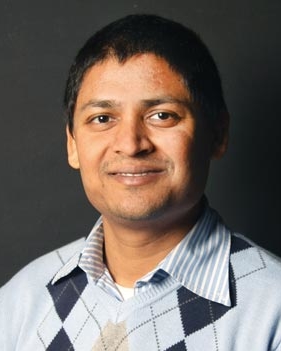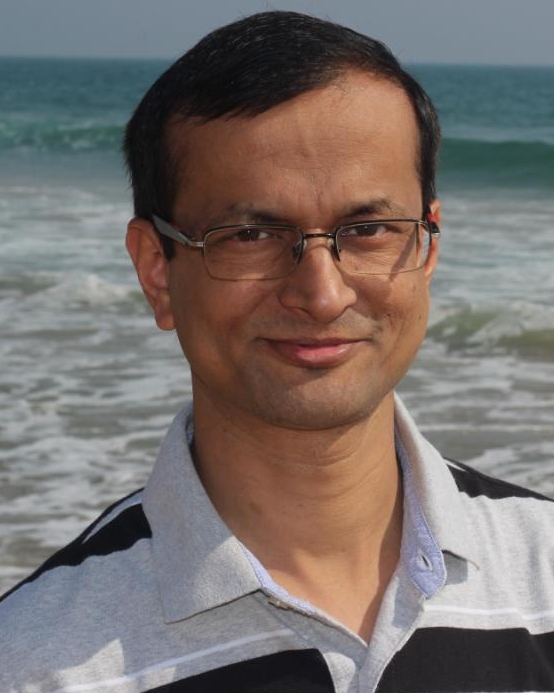Call for Papers
SPECIAL ISSUE ON "LANGUAGES COMPILERS TOOLS AND THEORY OF EMBEDDED SYSTEMS"
GUEST EDITORS:
Yulei Sui [email protected], University of New South Wales, Australia
Jason Xue, [email protected], Mohamed Bin Zayed University of Artificial Intelligence, United Arab Emirates
TOPIC SUMMARY:
The ACM SIGPLAN/SIGBED Conference on Languages, Compilers, Tools and Theory for Embedded Systems (LCTES 2024) will be held on June 24, 2024 in Copenhagen, Denmark. This special issue in the IEEE Embedded Systems Letters will consider peer-reviewed journal versions of submissions to LCTES 2024, as well as other papers received from the open call that fit within the scope of LCTES.
Embedded system design faces many challenges both with respect to functional requirements and nonfunctional requirements, many of which are conflicting. They are found in areas such as design and developer productivity, verification, validation, maintainability, and meeting performance goals and resource constraints. Novel design-time and run-time approaches are needed to meet the demand of emerging applications and to exploit new hardware paradigms.
This special issue solicits papers presenting original work on programming languages, compilers, tools, theory, and architectures that help in overcoming these challenges. Research papers on innovative techniques are welcome, as well as experience papers on insights obtained by experimenting with real-world systems and applications.
We solicit original papers on the following topics of interest related to LCTES:
- Programming language challenges
- Interaction between embedded architectures, operating systems, and compilers
- Predictability of resource behavior: energy, space, time
- Design and implementation of novel architectures
- Operating systems for mobile and IoT devices
- Large language models (LLMs) and programming languages/compilers
IMPORTANT DATES:
- Open for submissions in ScholarOne Manuscripts: April 15, 2024
- Closed for submissions: June 15, 2024
- Results of first round of reviews: Aug 15, 2024
- Submission of revised manuscripts: Sept 15, 2024
- Results of second round of reviews: Oct 15, 2024
- Publication materials due: Nov 15, 2024
SUBMISSION GUIDELINES: Prospective authors are invited to submit their manuscripts electronically after the “open for submissions” date, adhering to the IEEE Embedded Systems Letters guidelines (IEEE ESL website). Please submit your papers through the online system (https://mc.manuscriptcentral.com/les-ieee) and be sure to select the “SI:LCTES2024” option for the paper-type. Also, please indicate that you are submitting to the Special issue on LCTES 2024 in author's cover letter. Submitted manuscripts should not have been previously published nor be currently under consideration for publication elsewhere. Extensions to accepted LCTES conference paper must focus on intellectual merits that are separate from the LCTES paper. Conference extension papers may only be submitted if the paper has been completely rewritten, appropriate written permissions have been obtained from any copyright holders of the original paper, and the paper has been extended conceptually by at least 30%. All papers are refereed through a peer review process. All papers must be limited to 4 pages written in English. Accepted papers will be required to submit a 3-minute Video Preview, introducing and motivating the paper. Any questions on this special issue should be addressed to Aviral Shrivastava, [email protected].
Call for Special Issue Proposals
IEEE Embedded Systems Letters (ESL) is inviting proposals for special issues in the broad domain of embedded systems and software, cyber-physical systems, and the Internet of Things. Special issue proposals can focus on any research area that is consistent with the scope of ESL. The idea of the special issue is to provide an opportunity to capture a snapshot of the state-of-the-art on a specific theme, share new perspective, or enable a new research direction.
The prospective guest editor(s) should submit a short written proposal of up to four pages including the following information:
- Title of the Special Issue
- The Guest editor(s) name and affiliation
- The motivation and importance of the theme in the context of ESL
- The scope of the topics for the special issue
- Proposed schedule
- Potential contributors (IEEE rules disallow paper submissions to special issues by authors who have conflict-of-interest with the guest editors)
- Short bio of the guest editor(s)
- A draft one-page call for papers for the special issue
Proposals will be competitively selected through a rigorous review process in response to this public Call for Proposals. The selection of the proposals will be made by the Editor-in-Chief in consultation with the editorial board of the journal. Each submitted proposal will be evaluated based on the following criteria:
- Timeliness, relevance, and coherence of the theme
- Originality of the theme compared to recent special issues in ESL and other related journals
- Credential of the prospective Guest Editor(s)
There is no specific deadline for the submission of special issue proposals. Each proposal will be evaluated as and when it is submitted.
Current Call for perspective papers
IEEE Embedded Systems Letters (ESL) is inviting perspective papers in the broad domain of embedded systems and software, cyber-physical systems, and the Internet of Things. A perspective paper could present a grand challenge problem in the field that needs to be addressed, charter a new direction of research, express a contradictory viewpoint, or promote an interdisciplinary research area. The journal hopes that the perspective papers will be of lasting value to the community, and of the highest quality.
The perspective papers will go through the same rigorous peer-review process as the regular papers. However, the prospective authors may choose to first submit (at most) one-page title and abstract to ESL Deputy Editor-in-Chief, Preeti Ranjan Panda, ([email protected]) for quick feedback on the suitability of the proposal as a perspective paper. Given a positive assessment, the author may then proceed to expound upon the topic and submit the full perspective paper to https://mc.manuscriptcentral.com/les-ieee.
Note that the first step is not mandatory and is only meant to guide the authors. A positive assessment of the abstract does not imply acceptance of the paper. The full perspective paper will be evaluated by an Associate Editor of the journal and selected peer reviewers just like regular papers.
There is no specific deadline for the submission of perspective papers. Each paper will be evaluated as and when it is submitted.
Tie-ups with Conferences/workshops
ESL now has tie-ups with the following conferences and workshops for the possible presentation of accepted ESL papers:
- Embedded Systems Week - Papers in the "Late Breaking Results" category accepted at the three major conferences of ESWeek (CASES, CODES+ISSS, and EMSOFT), are now published in IEEE ESL.
- SeHAS 2024: Secure Hardware, Architectures, and Software - Authors of accepted ESL manuscripts in the area of system security may opt to be considered for presentation at SeHAS 2024. Invitation to present is at the discretion of the conference Technical Program Committee.
Authors of manuscripts may opt to be considered for such presentations. The conferences may be topic-specific, so not all accepted papers would be eligible for invitation to a specific conference. Invitation to present is at the discretion of the Technical Program Committee of the respective conference.




